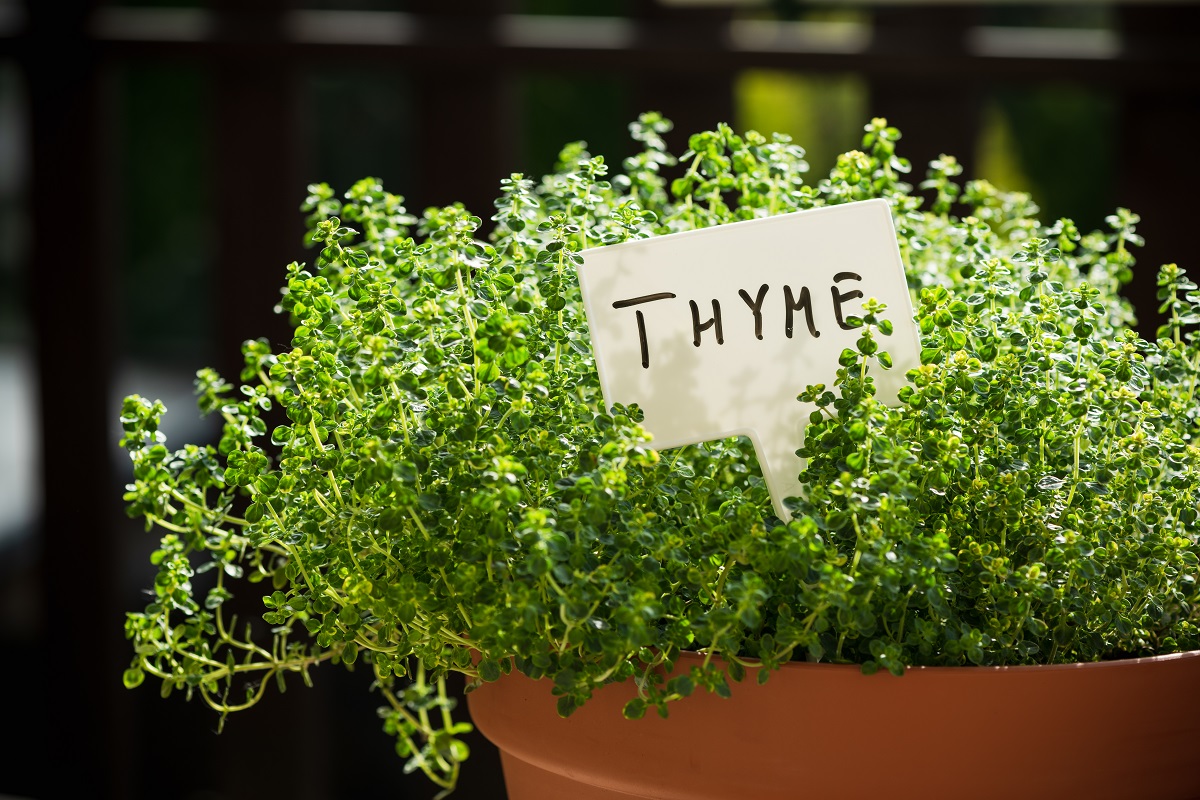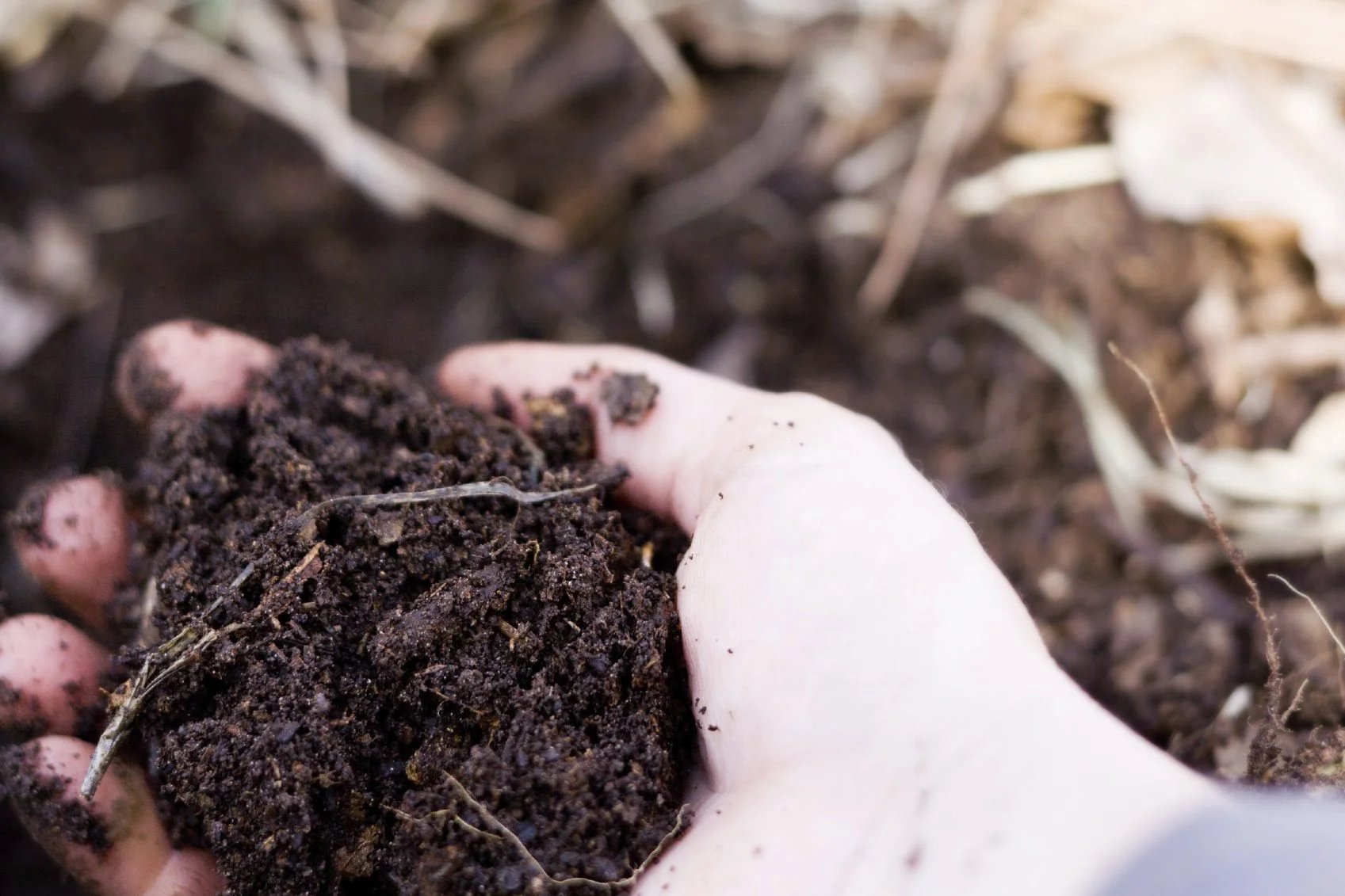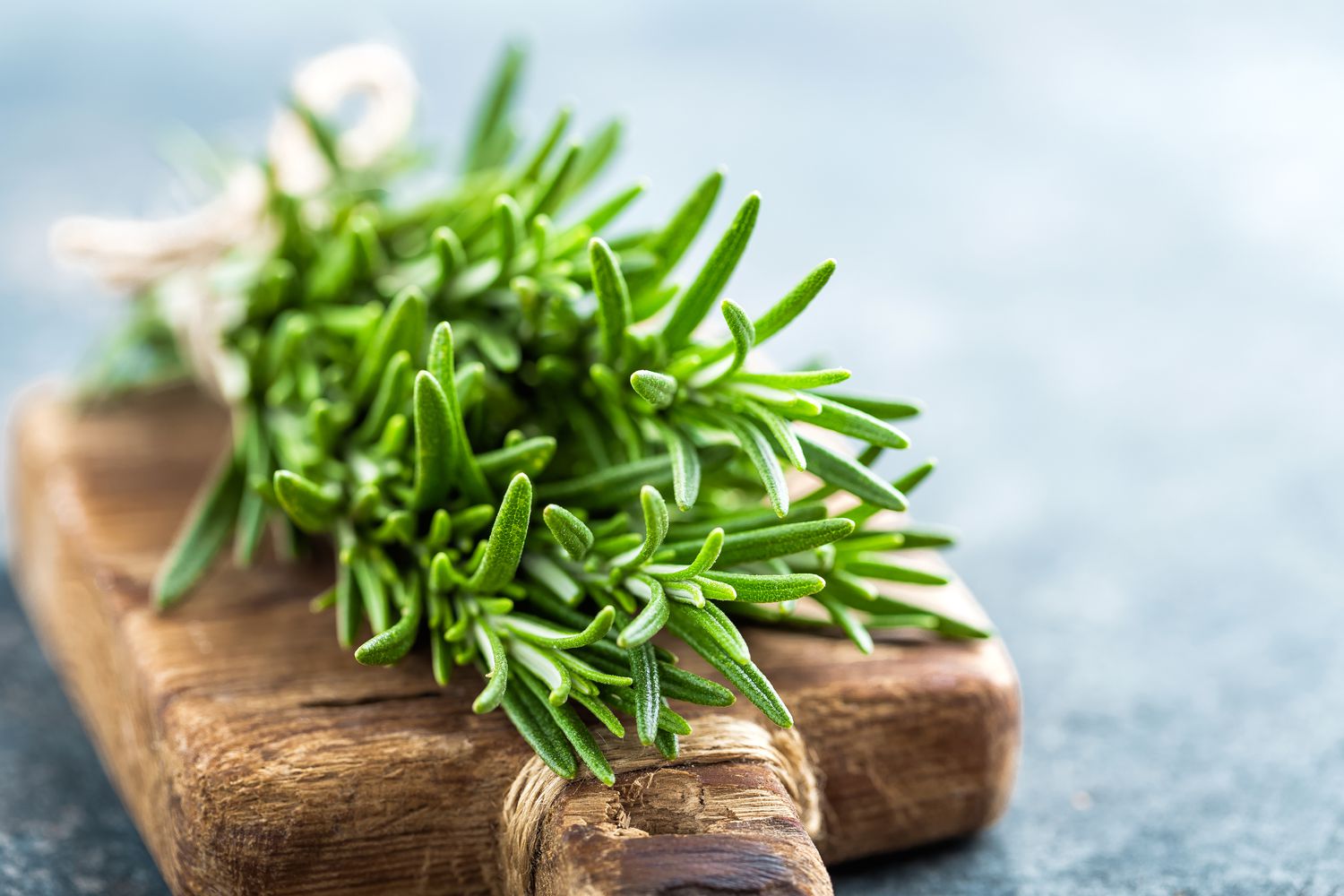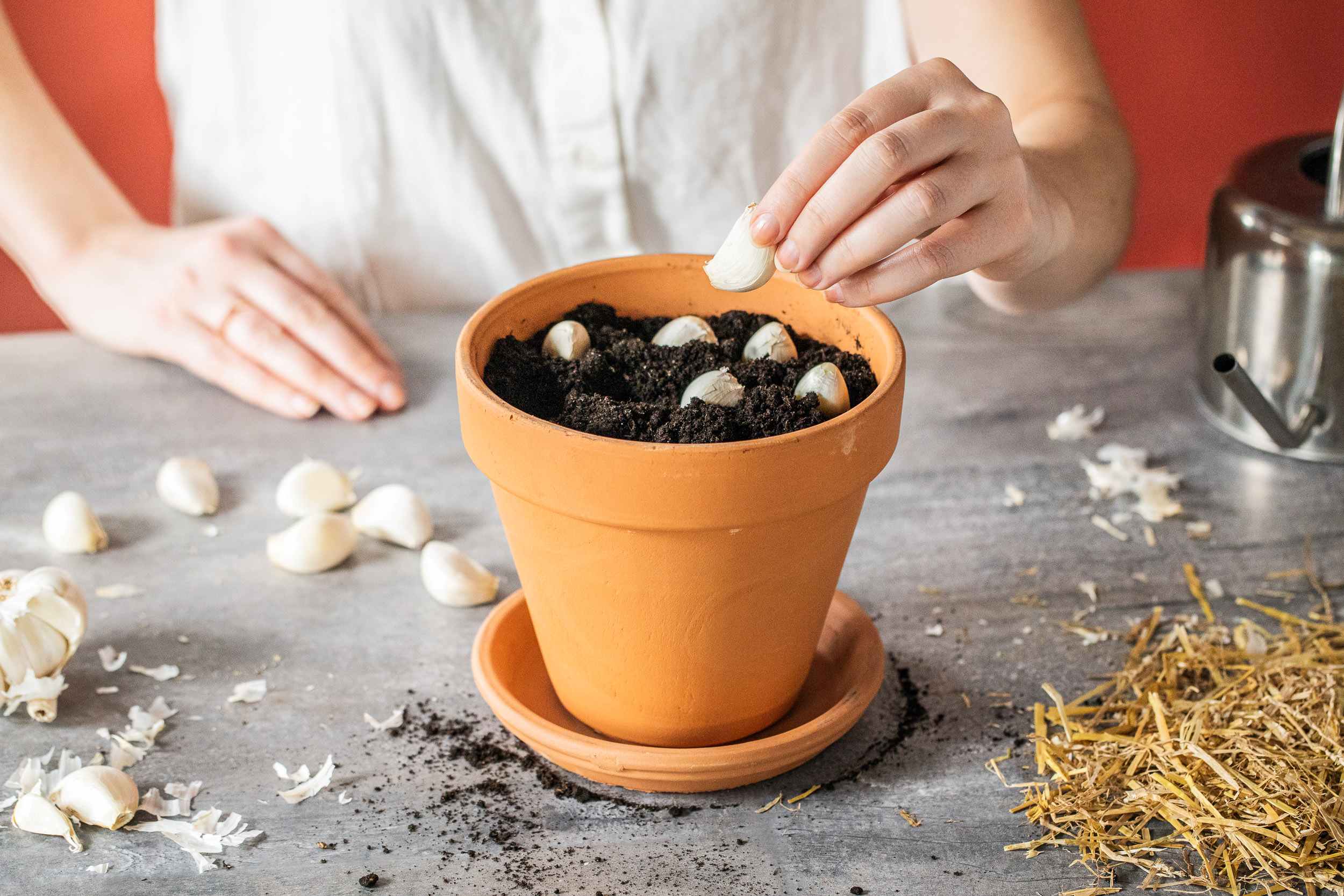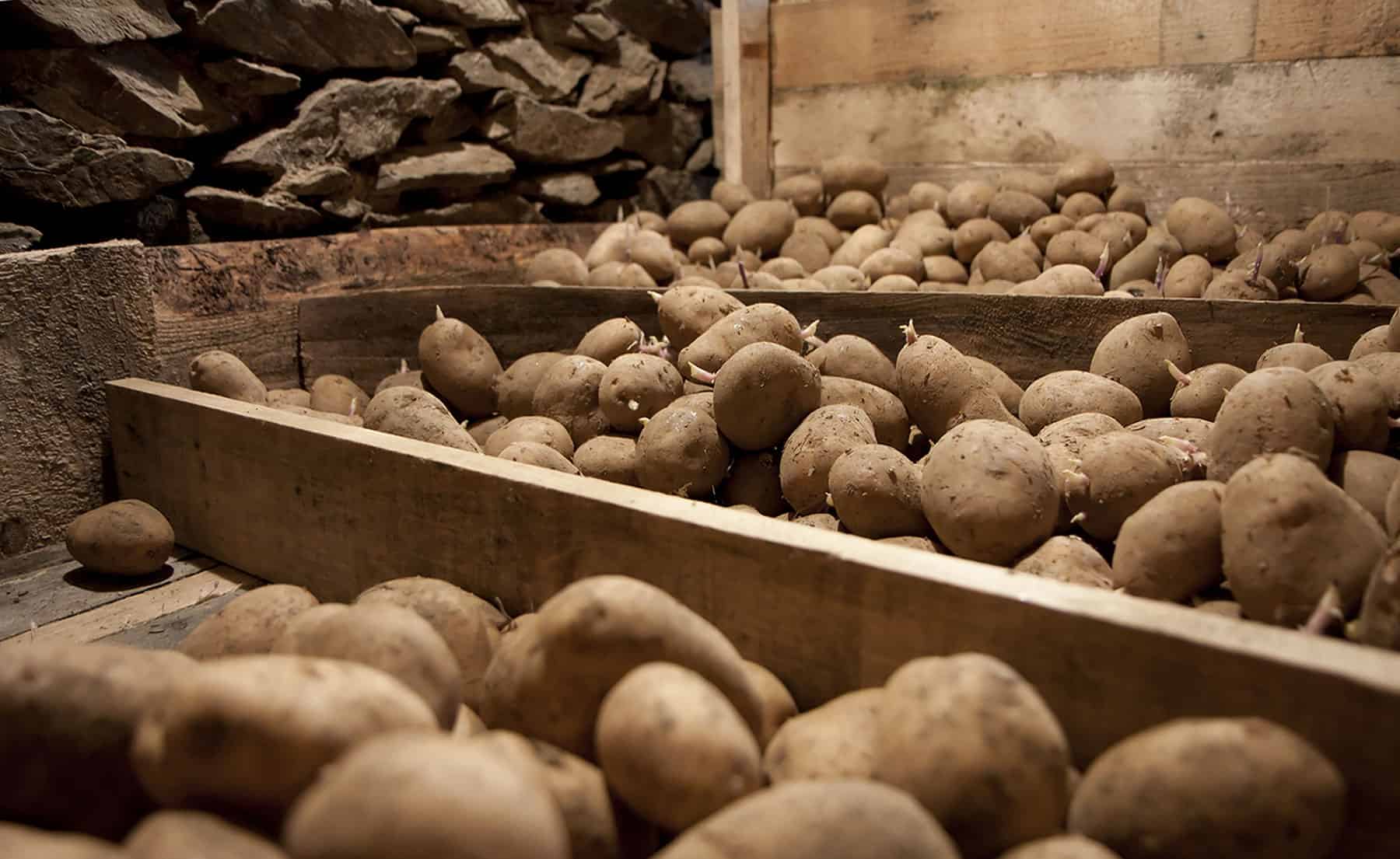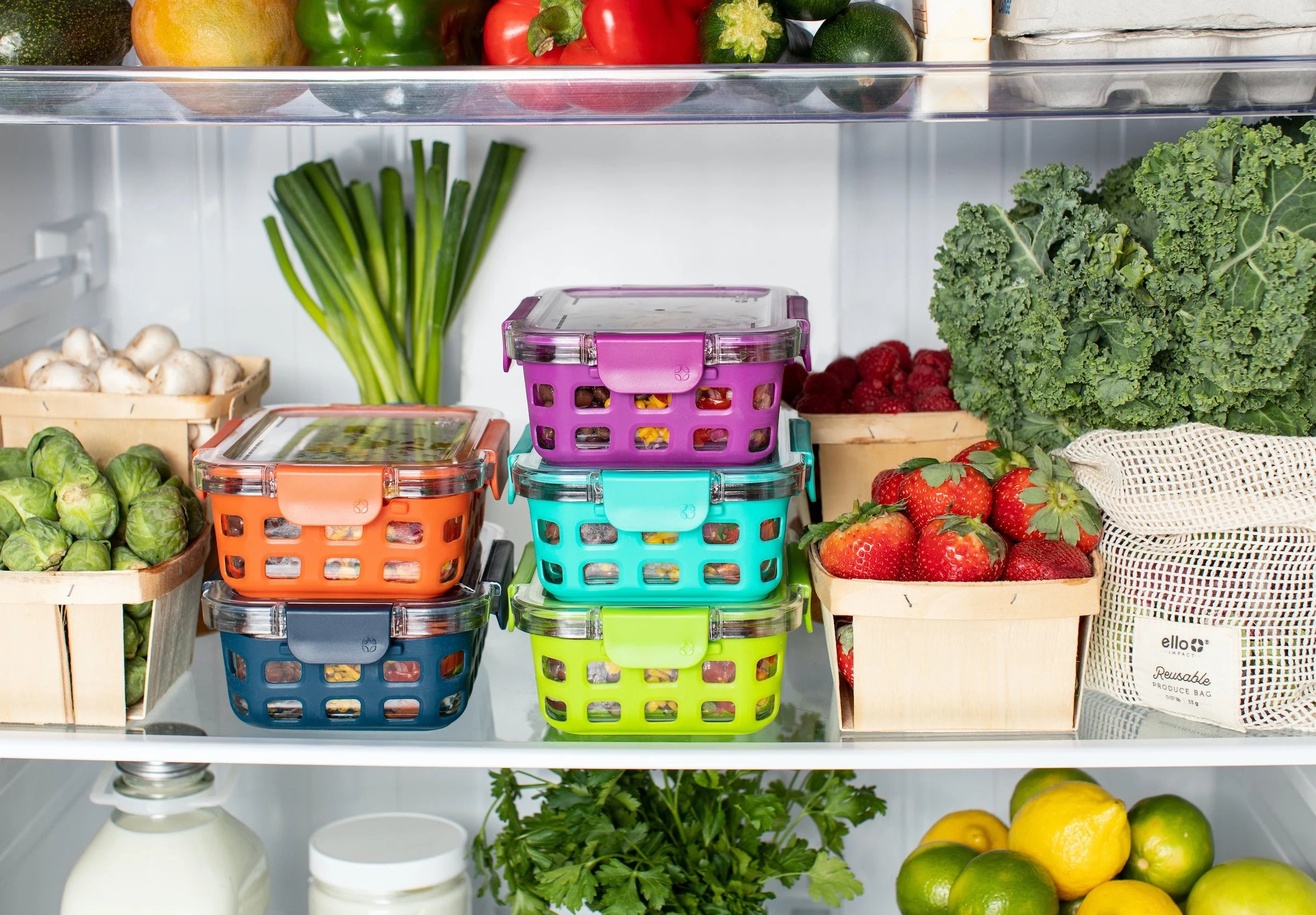Home>Gardening News and Trends>Latest News>How To Store Fresh Herbs
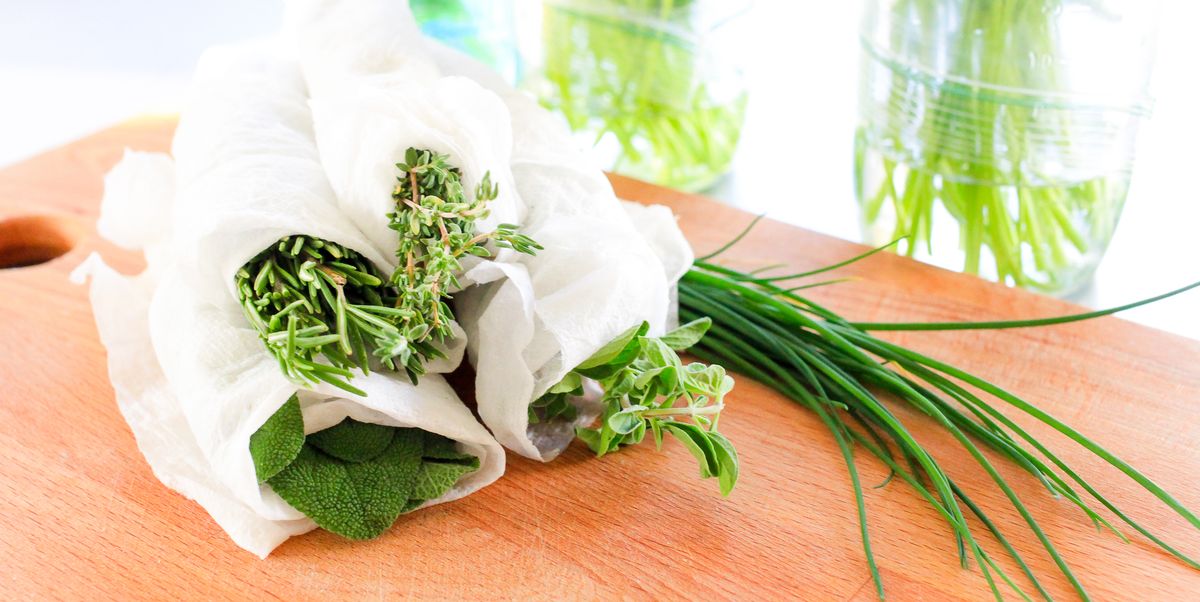

Latest News
How To Store Fresh Herbs
Modified: January 22, 2024
Discover the latest news and tips on how to store fresh herbs properly to ensure their freshness and flavor last longer. Learn effective techniques and storage methods for preserving your favorite herbs.
(Many of the links in this article redirect to a specific reviewed product. Your purchase of these products through affiliate links helps to generate commission for Chicagolandgardening.com, at no extra cost. Learn more)
Table of Contents
Introduction
Welcome to our guide on how to store fresh herbs! Whether you’re an avid home cook or simply appreciate the vibrant flavors and aroma of herbs, learning how to properly store them is essential. Fresh herbs bring life and depth to our dishes, elevating the overall culinary experience.
Proper herb storage is key to preserving their flavor, color, and nutritional value. It ensures that you have access to the vibrant taste and aroma that fresh herbs offer, even after they have been harvested. By following the right storage methods, you can extend the shelf life of your herbs and enjoy their goodness for a longer period of time.
In this guide, we will explore various methods of storing fresh herbs, including refrigeration, water storage, freezing, drying, and storing in oil. Each method has its own advantages and works well for different types of herbs. By understanding these techniques, you can choose the most suitable method for the specific herbs you have.
Whether you have an abundance of herbs from your garden or have purchased a large bunch from the grocery store, you can make the most of them by storing them correctly. By doing so, you can enjoy the convenience of having fresh herbs readily available whenever you need them, without worrying about them spoiling.
In the following sections, we will delve into the details of each storage method, explaining the steps involved and providing useful tips to ensure successful herb preservation. By following our recommendations, you can prolong the life of your fresh herbs and continue infusing your culinary creations with their delightful flavors.
Now, let’s dive in and explore the wonderful world of fresh herb storage!
Why Proper Herb Storage is Important
Proper herb storage is crucial for several reasons. First and foremost, it helps to preserve the flavor and aroma of the herbs. Fresh herbs are known for their vibrant tastes and fragrances, and proper storage ensures that these qualities are maintained for as long as possible.
When herbs are not stored correctly, they can quickly lose their potency and flavor. The volatile oils that give herbs their distinct aroma and taste can evaporate if exposed to improper storage conditions, such as excessive heat or prolonged exposure to air. This can result in dull and lackluster herbs that fail to deliver the desired flavor profiles in your dishes.
Additionally, proper storage helps to retain the nutritional value of the herbs. Fresh herbs are packed with vitamins, minerals, and antioxidants that offer a range of health benefits. When stored properly, these nutrients are better preserved, allowing you to reap the maximum nutritional value from your herbs.
Furthermore, proper herb storage can save you money. If you often find yourself throwing away wilted and spoiled herbs, you are essentially wasting money. By storing your herbs correctly, you can minimize waste and extend their shelf life, ensuring that you get the most out of your herb purchases.
Another reason why proper herb storage is important is convenience. By having well-preserved herbs on hand, you can easily enhance the flavors of your dishes without the need for last-minute trips to the grocery store. This is particularly beneficial if you enjoy experimenting with different herbs and flavors in your cooking.
Finally, proper storage methods can help you reduce food waste. As we become more conscious of our environmental impact, finding ways to minimize waste is crucial. By storing herbs properly and utilizing them before they spoil, you can contribute to a more sustainable approach in the kitchen.
All in all, proper herb storage is essential for preserving flavor, retaining nutritional value, saving money, ensuring convenience, and reducing food waste. By implementing the right storage methods, you can prolong the shelf life of your fresh herbs and fully enjoy the delightful tastes, aromas, and health benefits they provide.
Choosing the Right Storage Method
When it comes to storing fresh herbs, there are various methods to choose from. The ideal storage method depends on the type of herb and your specific needs. To make the best decision, consider factors such as the herb’s shelf life, intended use, and preferred flavor intensity.
Some herbs, like basil and parsley, benefit from different storage methods than heartier herbs like rosemary or thyme. Delicate herbs tend to wilt quickly and require more delicate storage techniques, while robust herbs can withstand different storage conditions.
Here are a few common storage methods to consider:
- Refrigeration: Refrigerating fresh herbs can help prolong their freshness. Wrap the herbs in a slightly dampened paper towel and place them in a resealable bag or airtight container. This method works well for delicate herbs like cilantro or dill, extending their shelf life for up to a week.
- Water Storage: This method is ideal for tender herbs with stems, such as basil or mint. Trim the ends of the stems and place the herbs in a glass or jar filled with water, similar to a bouquet of flowers. Cover the top loosely with a plastic bag and store in the refrigerator. This method helps keep the herbs fresh for several days.
- Freezing: Freezing is a great option for preserving herbs for an extended period. Simply chop or mince the herbs, place them in ice cube trays, and cover them with water or oil. Once frozen, transfer the herb cubes to a freezer bag. This method allows you to conveniently add herbs to your dishes whenever needed.
- Drying: Drying herbs removes their moisture, allowing them to be stored for long periods. To dry herbs, tie a bunch of stems together and hang them upside down in a well-ventilated area. Once dried, remove the leaves from the stems and store them in an airtight container. This method works well for herbs like rosemary, thyme, or oregano.
- Storing in Oil: Herbs can be stored in oil to preserve their flavors and create infused oils for cooking. Chopped herbs are mixed with oil and stored in a sealed jar in the refrigerator. This method allows you to have flavorful herb-infused oils readily available for cooking or drizzling over dishes.
Ultimately, the choice of storage method depends on your preferences and the specific herbs you are working with. Experiment with different techniques to find the methods that work best for you and your culinary needs. By selecting the appropriate storage method, you can ensure that your fresh herbs remain vibrant and flavorful for as long as possible.
Storing Herbs in the Refrigerator
Refrigeration is a popular method for storing fresh herbs, especially those with delicate leaves such as cilantro, parsley, and dill. Follow these steps to effectively store herbs in the refrigerator:
- Prep the herbs: Begin by gently rinsing the herbs under cold water to remove any dirt or debris. Pat them dry with a paper towel or use a salad spinner to remove excess moisture.
- Wrap in a damp paper towel: Dampen a paper towel slightly and wrap it around the herbs. This helps maintain a slightly humid environment, preventing the herbs from drying out too quickly.
- Place in an airtight container or bag: Transfer the wrapped herbs to an airtight container or sealable plastic bag. Make sure the container is not too tight, as herbs need some airflow to remain fresh.
- Store in the refrigerator: Place the container or bag in the refrigerator’s crisper drawer, which helps regulate humidity. If you don’t have a crisper drawer, you can use any other section of the refrigerator where the temperature and humidity are relatively stable.
- Check and refresh: Periodically check on the stored herbs and change the paper towel if it becomes damp or discolored. This helps maintain freshness and prevents the growth of mold or bacteria.
By storing herbs in the refrigerator using this method, you can extend their shelf life for up to a week. This allows you to have fresh herbs readily available whenever you need them, without compromising their flavor or quality.
It’s important to note that not all herbs are suitable for refrigeration. Some, like basil and mint, are more delicate and may not respond well to cold temperatures. For these herbs, consider using the water storage method mentioned earlier to maintain their freshness.
Remember to use the stored herbs within a week for the best flavor and quality. As time passes, herbs may become wilted, losing their vibrant colors and flavors. However, even if they lose some of their freshness, refrigerated herbs can still be used in cooked dishes, sauces, or soups, where their flavors will be enhanced by heat.
Overall, refrigeration is a convenient and effective way to store fresh herbs, extending their shelf life and allowing you to enjoy their flavors in a wide variety of dishes.
Storing Herbs in Water
Storing herbs in water is a simple and effective method to keep delicate herbs like basil, mint, and cilantro fresh for a longer period. Here’s how you can store herbs in water:
- Trim the ends: Start by trimming the ends of the herb stems. This helps improve water absorption and keeps the herbs fresh for a longer time.
- Fill a container with water: Take a glass or jar and fill it with a few inches of cool water. Make sure the container is clean and that the water is not too cold, as extremely cold water can shock the herbs.
- Place the herbs in the container: Gently place the herb stems in the container, ensuring that the cut ends are submerged in the water. If you have different herbs, you can use separate containers to prevent any cross-contamination of flavors.
- Loosely cover the herbs: Cover the top of the container loosely with a plastic bag or a plastic wrap. This helps create a humid environment while still allowing some air circulation.
- Store in the refrigerator: Keep the container of herbs in the refrigerator, ideally in the crisper drawer. This drawer helps maintain the right level of humidity, keeping the herbs fresh and hydrated.
- Change the water regularly: Check the water in the container every day or every other day, and change it if it becomes cloudy or discolored. Make sure to trim the stems slightly each time you change the water to ensure maximum water absorption.
By storing delicate herbs in water, you can extend their freshness for up to a week or even longer. The water provides hydration to the stems, keeping the leaves vibrant and crisp. This method also helps herbs retain their flavor and aroma, so you can enjoy them in your recipes whenever you need them.
It’s important to note that not all herbs are suitable for water storage. Herbs with tougher stems, such as rosemary or thyme, may not benefit from this method as much as delicate herbs. For these herbs, consider using alternative storage methods discussed earlier, such as refrigeration or drying.
Remember to use the herbs within a week or according to their typical shelf life, as they may start to wilt and lose their freshness over time. If you find that the herb stems become slimy or show signs of mold, it’s best to discard them and replace with fresh ones.
Storing herbs in water is a great way to keep delicate herbs fresh and ready to use. It’s a visually appealing method that also adds a touch of freshness to your kitchen, making it easier than ever to incorporate herbs into your favorite meals.
Freezing Herbs for Long-Term Storage
Freezing herbs is an excellent method for long-term storage, allowing you to preserve their flavors and aromas for several months. This method is particularly useful when you have a surplus of herbs or want to ensure a ready supply during the off-season. Here’s how you can freeze herbs:
- Prepare the herbs: Start by washing the herbs under cold water and patting them dry with a paper towel. Remove any damaged or discolored leaves.
- Choose the freezing method: There are two common methods for freezing herbs: freezing them in water or freezing them in oil. The method you choose depends on how you plan to use the herbs later.
- Freezing herbs in water: Chop the herbs into small pieces. Place the chopped herbs in ice cube trays and cover them with water. Freeze until the cubes are solid, then transfer them to a labeled freezer bag. This method is ideal for adding herbs to soups, sauces, or stews directly from the freezer.
- Freezing herbs in oil: Chop the herbs finely and place them in ice cube trays. Fill the trays up to three-quarters full with the chopped herbs, then cover with olive oil. Freeze until solid, and then transfer the frozen herb-oil cubes to a labeled freezer bag. This method is great for adding herbs to sautés, stir-fries, or roasted dishes.
- Store in the freezer: Place the labeled freezer bag with the herb cubes in the freezer. It’s important to label the bag with the herb name and the date of freezing, as it will help you keep track of their freshness.
- Utilize the frozen herbs: When a recipe calls for herbs, simply remove the desired number of herb cubes from the freezer bag. Add them directly to your dish and allow them to melt and infuse their flavors.
By freezing herbs using these methods, you can retain much of their flavor and aroma, allowing you to enjoy the taste of freshly picked herbs throughout the year. This technique is particularly useful for herbs like basil, cilantro, or parsley, which can lose their flavor quickly when dried.
Remember to use the frozen herbs within six months to maintain the best quality and flavor. Over time, frozen herbs may start to develop freezer burn, causing a loss in flavor and texture. Be sure to rotate your stock, using the oldest herbs first and replenishing with fresh herbs as needed.
Freezing herbs is a convenient option that allows you to extend the shelf life of your fresh herbs and enjoy their flavors in a wide variety of dishes, even when they’re out of season.
Drying Herbs for Preserving
Drying herbs is one of the oldest and most traditional methods of preserving them. It removes the moisture from the herbs, allowing you to keep them for an extended period while retaining their flavors and aromas. Here’s how you can dry herbs:
- Harvest the herbs: Begin by harvesting your herbs, ideally in the morning after the dew has dried but before the sun becomes too intense. Choose herbs with healthy leaves and stems, discarding any damaged or discolored parts.
- Prepare the herbs: Gently rinse the herbs under cold water to remove any dirt or debris. Shake off excess water or pat them dry with a paper towel. Be careful not to bruise or crush the leaves during this process.
- Bundle the stems: Tie small bunches of herbs together at the stem ends using a string or a rubber band. Aim for compact and manageable bundles that allow air to circulate around the herbs. Bigger bundles may take longer to dry and may not dry evenly.
- Hanging method: Hang the herb bundles upside down in a warm, well-ventilated area away from direct sunlight. Ensure that the herbs are suspended freely and not touching any surfaces or each other. This method allows air to circulate around the herbs, encouraging even drying.
- Drying rack method: Alternatively, you can place the herb bundles on a drying rack or a mesh screen in a well-ventilated area. This method also provides good air circulation for drying the herbs evenly.
- Monitor the drying process: Check on the herbs regularly, as they can take anywhere from a few days to a few weeks to dry completely, depending on the herb and environmental conditions. The herbs are ready when they feel crispy and crumble easily between your fingers.
- Remove the leaves: Once the herbs are completely dry, remove the leaves from the stems. Discard the stems and store the leaves in airtight containers, like glass jars or zip-lock bags. Make sure to label and date the containers for future reference.
Properly dried herbs can retain their flavors and aromas for six months to a year when stored correctly. They are ideal for seasoning dishes during cooking or infusing into teas and herbal blends.
Keep in mind that different herbs have varying drying times and may require different hanging periods. Delicate herbs like basil or mint dry quickly, while tougher herbs like rosemary or thyme may take longer. It’s important to monitor the drying process and adjust accordingly.
Drying herbs allows you to have a readily available supply of herbs throughout the year. Additionally, the process of drying herbs can be enjoyable and rewarding, as it allows you to connect with nature and appreciate the flavors and aromas that herbs bring to your culinary creations.
Storing Fresh Herbs in Oil
Storing fresh herbs in oil is a fantastic way to not only preserve their flavors but also create flavorful herb-infused oils for your culinary endeavors. This method allows you to have a convenient and ready-to-use supply of herb-infused oil whenever you need it. Here’s how you can store fresh herbs in oil:
- Prep the herbs: Start by washing the herbs thoroughly and patting them dry with a paper towel. Ensure that the herbs are completely dry to prevent any moisture from causing spoilage.
- Remove the leaves: Remove the leaves from the herb stems, discarding the stems. Chop the leaves finely using a sharp knife or herb scissors. Finely chopped herbs enable better flavor infusion into the oil.
- Combine herbs with oil: Place the chopped herbs into a clean, dry glass jar. Cover the herbs with your choice of oil, such as olive oil or sunflower oil. Ensure that all the herbs are submerged in the oil.
- Seal the jar: Seal the jar tightly with a lid. This helps prevent air from entering and spoiling the oil. Store the jar in a cool, dark place away from direct sunlight.
- Allow infusion time: Allow the herbs to infuse into the oil for at least a week, although longer infusion times can lead to even more pronounced flavors. Shake the jar gently every few days to help distribute the herb flavors throughout the oil.
- Strain and store: Once the desired infusion time has passed, strain the oil to remove the herb particles. Use a fine-mesh strainer or cheesecloth to separate the oil from the herbs, ensuring a smooth and clear herb-infused oil. Transfer the oil to a clean, airtight glass container.
The herb-infused oil can be stored in the refrigerator to further extend its shelf life. Properly stored, it can typically last up to a month, but it’s important to check for any signs of spoilage, such as cloudiness or off odors, before using.
Herb-infused oils add incredible flavor to a variety of dishes, from salad dressings and marinades to pasta sauces and drizzles over roasted vegetables. They can also be used as a dipping oil for bread or as a finishing touch to enhance the flavors of a dish.
Experiment with different herb combinations to create your own unique blends. Herbs like rosemary, thyme, basil, and oregano work particularly well for infusing oil, but feel free to explore other herbs that you enjoy.
Storing fresh herbs in oil not only preserves their flavors but also allows you to explore new taste sensations in your cooking. It’s a simple and creative way to elevate your dishes and enjoy the vibrant essence of herbs throughout the year.
Tips for Extending the Shelf Life of Fresh Herbs
To make the most out of your fresh herbs and ensure their longevity, here are some helpful tips to extend their shelf life:
- Proper storage temperature: Most herbs prefer cool temperatures. Store them in the refrigerator to slow down the wilting process. However, some delicate herbs like basil do better at room temperature, so adjust accordingly.
- Moisture control: Excess moisture can cause herbs to decay quickly. Make sure to pat herbs dry with a paper towel or spin them in a salad spinner after rinsing them. This helps remove excess moisture and prevent mold or bacterial growth.
- Remove damaged leaves: Before storing, inspect the herbs and remove any damaged or wilted leaves. These leaves can release ethylene gas, which speeds up the deterioration of other leaves.
- Airtight containers: Use airtight containers or resealable bags to store your herbs. Airtight containers not only help retain freshness but also prevent the transfer of odors from other foods in the refrigerator.
- Label and date: To keep track of the freshness of your herbs, label the containers or bags with the herb name and date of storage. This ensures that you use the oldest herbs first and maintain a rotation system.
- Freeze leftover herbs: If you have leftover herbs that you won’t be able to use before they spoil, consider freezing them for future use. Freezing herbs in oil or water is a great way to preserve their flavors for later use in cooking.
- Herb-coated butter: Another option to extend the shelf life of fresh herbs is to make herb-coated butter. Blend chopped herbs into softened butter, roll it into a log, and wrap it tightly in plastic wrap. Refrigerate or freeze the herb butter and slice off portions as needed.
- Grow your own herbs: Consider growing your own herb garden. Having fresh herbs readily available in your backyard or windowsill allows you to pick them as needed, ensuring the highest level of freshness and flavor.
- Drying herbs: Make use of the drying method mentioned earlier to preserve herbs. Air-dried herbs can be stored for an extended period and used in recipes that require dried herbs.
- Organize your herbs: Keeping your herbs organized can help ensure that you use them before they spoil. Arrange them in a way that allows easy visibility and access to avoid forgetting about them.
By implementing these tips, you can maximize the shelf life of your fresh herbs, minimizing waste, and enjoying their vibrant flavors and aromas for an extended period. With a little care and attention, you can make the most of your herb collection and elevate the taste of your culinary creations.
Conclusion
Properly storing fresh herbs is essential for preserving their flavors, colors, and nutritional value. By implementing the right storage methods, you can extend the shelf life of your herbs, ensuring that they remain fresh and vibrant for as long as possible.
Throughout this guide, we have explored various methods of herb storage, including refrigeration, water storage, freezing, drying, and storing in oil. Each method offers its own benefits and works well for certain types of herbs.
Refrigeration is ideal for delicate herbs like cilantro or dill, while water storage is a great option for herbs with stems, such as basil or mint. Freezing is perfect for long-term storage, allowing you to preserve herbs and maintain their flavors even during the off-season. Drying herbs is a traditional method that helps retain their flavors for extended periods, while storing fresh herbs in oil creates flavorful herb-infused oils for your cooking needs.
By following the tips provided, such as controlling moisture, using airtight containers, and utilizing herb-coated butter or herb gardens, you can further enhance the longevity of your herbs and minimize waste.
Remember, fresh herbs not only add delicious flavors to your dishes but also offer numerous health benefits. Their vibrant colors and aromatic aromas can elevate your cooking to new heights. With a little planning and attention to storage, you can have fresh herbs at your fingertips whenever you need them, allowing you to create delightful culinary creations.
So, whether you have an abundance of herbs from your garden or have purchased a bunch from the store, take advantage of these storage methods and enjoy the wonderful world of fresh herbs in your cooking!
